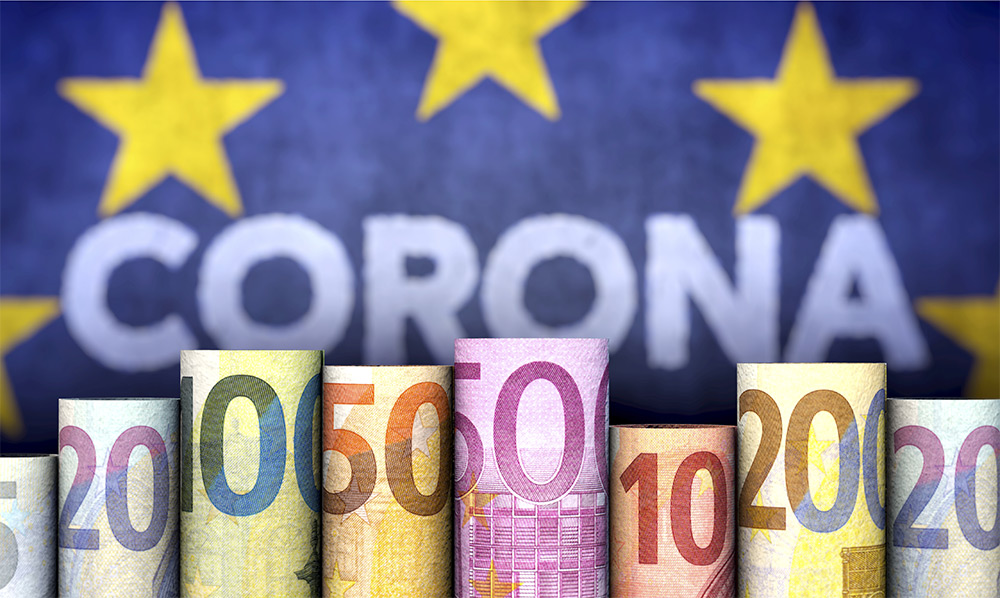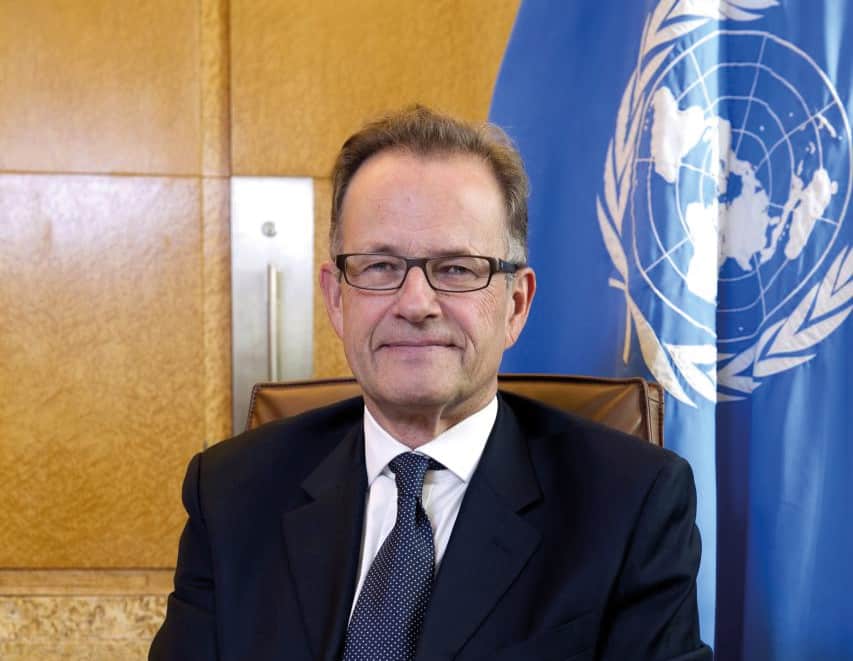[vc_row][vc_column width=”1/2″][vc_column_text]
Cyprus
The light green area is the rest of the European Union
Cyprus was the 107th largest economy in the world by nominal GDP in 2018. GDP per capita is $28,159 USD. It is ranked 28th in the World Bank's Human Capital Index and 45th in the Logistics Performance Index. It has been a member of the EU since May 2004 and adopted the euro in January 2008. Services was the largest economic sector in 2018 (73 percent of GDP), followed by manufacturing (4.7 percent), and agriculture (1.7 percent). In 2017, the largest export sectors were services (75 percent) and vehicles (5.4 percent). The largest individual exports were travel and tourism (21 percent), transport services (20 percent), insurance and finance (17.4 percent), and ICT services (16.6 percent). Its largest export partners were Greece (11 percent), Israel (9.5 percent), Libya (7.8 percent), and the UK (4.7 percent). The largest goods imports were refined petroleum (14 percent), cargo ships and similar vessels (11.8 percent), special function vessels (4.6 percent), and other vessels (3.94 percent). Following independence from the UK in 1959, the government pursued import substitution, and developed agriculture, and tourism. Initially agricultural exports led the way but was soon eclipsed by manufacturing, and tourism. After the conflict with Turkey in 1974 and the large internal migrations, Cyprus pursued labour-intensive industries such as textiles and clothing, which led to full employment by 1977. During the 1980s, tourism emerged as the main driver of the economy with new resorts and infrastructure built in the south. The shipping industry also grew rapidly and since Cyprus' entry into the EU, it has become a major player in the European shipping industry due to its location, skilled workers, and tax incentives. Accession to the EU also led to the liberalisation and growth of the banking industry. Fuelled by domestic credit, Cyprus' two largest banks expanded aggressively, spurring economic growth. However, when the Greek debt crisis hit in 2010, the banks were left exposed and in 2013, the government received a bail-out from the EU and IMF. By 2015, the economy had recovered from the 2012-2013 recession with strong growth in service exports.
[/vc_column_text][vc_column_text] Its population in 2018 was 861,016 [1]
Its population in 2018 was 861,016 [1]
 In 2015, 9.94% of its total energy
In 2015, 9.94% of its total energy
consumption was renewable [2]
 In 2021, its GDP grew by 5.51% [2]
In 2021, its GDP grew by 5.51% [2]
 In 2021 it had a negative Current
In 2021 it had a negative Current
Account Balance of US$bn 2.10 [3]
 Its unemployment rate in 2021 was 7.48% [3]
Its unemployment rate in 2021 was 7.48% [3]
 Its Expenditure on R&D (as a percentage of
Its Expenditure on R&D (as a percentage of
GDP) in 2020 was 0.82% [2]
What free trade areas or economic unions is it a member of?
Member of the European Union (EU) since 01/05/2004
Other members:
Austria, Belgium, Bulgaria, Croatia, Czechia, Denmark, Estonia, Finland, France, Germany, Greece, Hungary, Ireland, Italy, Latvia, Lithuania, Luxembourg, Malta, Netherlands, Poland, Portugal, Romania, Slovakia, Slovenia, Spain, Sweden
What trade deals are there between European Union and other countries and economic unions?
EU - Andorra Customs Union (from 01/01/1991)
European Single Market (SM) (from 01/01/1993)
EU - Sri-Lanka Co-operation and Partnership Agreement (from 01/04/1995)
EU - Türkiye Customs Union (from 31/12/1995)
EU - Faroe Islands Agreement (from 01/01/1997)
EU - Palestinian Authority Interim Association Agreement (from 01/07/1997)
EU - Tunisia Association Agreement (from 01/03/1998)
EU - Armenia Partnership and Cooperation Agreement (from 09/09/1999)
EU - Morocco Association Agreement (from 01/03/2000)
EU - Israel Association Agreement (from 01/06/2000)
EU - Mexico Global Agreement (from 01/10/2000)
EU - San Marino Customs Union (from 01/04/2002)
EU - Jordan Association Agreement (from 01/05/2002)
EU - North Macedonia Stabilisation and Association Agreement (from 01/04/2004)
EU - Pakistan Co-operation agreement (from 29/04/2004)
EU - Egypt Association Agreement (from 01/06/2004)
EU - Chile Association Agreement and Additional Protocol (from 01/03/2005)
EU - Algeria Association Agreement (from 01/09/2005)
EU - Lebanon Association Agreement (from 01/04/2006)
EU - Albania Stabilisation and Association Agreement (from 01/04/2009)
EU - Pacific States Interim EPA (from 20/12/2009)
EU - Montenegro Stabilisation and Association Agreement (from 01/05/2010)
EU - Central America Association Agreement (from 01/08/2013)
EU - Serbia Stabilisation and Association Agreement (from 01/09/2013)
EU - Bosnia and Herzegovina Stabilisation and Association Agreement (from 01/06/2015)
EU - South Korea Free Trade Agreement (from 01/07/2015)
EU - Kosovo Stabilisation and Association Agreement (from 01/04/2016)
EU - Georgia Association Agreement (from 01/07/2016)
EU - Moldova Association Agreement (from 01/07/2016)
EU - Canada Comprehensive Economic and Trade Agreement (CETA) (from 21/09/2017)
EU - Eswatini (SADC) Economic Partnership Agreement (from 05/02/2018)
EU - Lesotho (SADC) Economic Partnership Agreement (from 05/02/2018)
EU - Mozambique (SADC) Economic Partnership Agreement (from 05/02/2018)
EU - Namibia (SADC) Economic Partnership Agreement (from 05/02/2018)
EU - South Africa Economic Partnership Agreement (from 05/02/2018)
EU - Botswana (SADC) Economic Partnership Agreement (from 05/02/2018)
EU - Japan Economic Partnership Agreement (from 01/02/2019)
EU - Eastern and Southern Africa States free trade agreement (from 07/02/2019)
UK - EU Trade Deal (from 01/01/2021)
[/vc_column_text][vc_column_text]What trade deals are there with other countries and economic unions?
None
[/vc_column_text][/vc_column][vc_column width=”1/2″][vc_column_text]Deloitte & Touche: The Middle East’s Boost From Bank and Corporate Initiatives
Deloitte: Constructing a Sustainable Future in the Middle East
Applied Science Private University (ASPU): Bringing Tomorrow’s Tech Specialists to the World’s Attention
Business in Times of Corona: Pandemic Puts Eurobonds Back on the Table
Clarion Call to Unite Behind Push to Achieve SDG Targets
Gabriel Chaleplis Leads the Way Into the Intelligent Future of Betting and Gaming
CFI.co Meets the CEO of Cyprus Cooperative Bank: Nicholas Hadjiyiannis
CFI.co Meets the Co-Founding Partner and MD of Ioannides Demetriou LLC: Pambos Ioannides
CFI.co Meets the CEO of Cooperative Central Bank: Nicholas Hadjiyiannis
CFI.co Meets the CEO of Hellenic Bank: Bert Pijls
Trade with the United Kingdom
Source: UK Office for National Statistics, October 2022.
Contains public sector information licensed under the Open Government Licence v3.0.


























































































